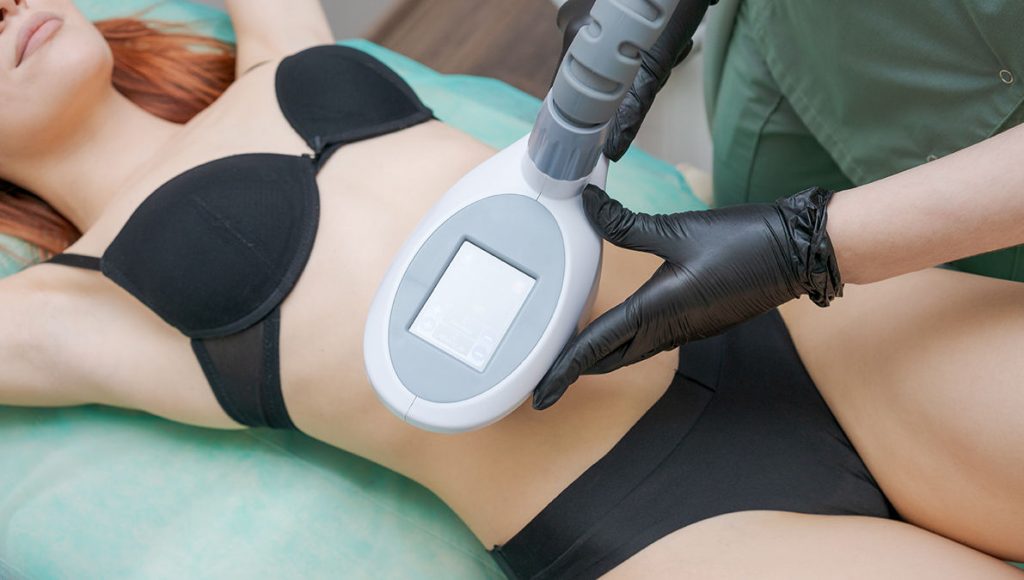Can You Get Liposuction With Lupus?
 November 13, 2023 | Lupus
November 13, 2023 | Lupus
People with lupus may wonder if it is safe to undergo liposuction. A certified plastic surgeon, Dr. Kevin Tehrani, explains that after examining and discussing with a primary physician, it is possible to undergo liposuction as long as medical clearance is obtained from treating doctors or rheumatologists. It is recommended to start with a small area liposuction to gauge how well a patient tolerates the procedure before considering more extensive procedures. Safety is of primary importance, and finding a certified surgeon with experience is essential.

Key Takeaways:
- Lupus patients can undergo liposuction after obtaining medical clearance from their treating doctors or rheumatologists.
- Starting with a small area liposuction is recommended to assess the patient’s tolerance before considering more extensive procedures.
- Choosing a certified plastic surgeon with experience in treating lupus patients is crucial for safety.
- Proper communication between the plastic surgeon and lupus doctors is essential to ensure the safest possible cosmetic procedures.
- It is important to weigh the risks and benefits of liposuction for individuals with lupus and involve healthcare providers in the decision-making process.
The Relationship Between Lupus and Plastic Surgery
Systemic lupus erythematosus, an autoimmune disease characterized by inflammation in healthy tissues and organs, can have implications for individuals considering plastic surgery.
The risks and complications associated with plastic surgery are heightened for someone with lupus due to the nature of the disease. When undergoing cosmetic procedures, individuals with lupus may experience delayed wound healing, excessive bruising, increased bleeding, and a higher risk of infections.
These complications are particularly common in patients who are on immunosuppressive medications or steroids.
Proper communication between the plastic surgeon and the patient’s lupus doctors is crucial to ensure the safest possible cosmetic procedures. By collaborating with the patient’s healthcare team and rheumatologists, plastic surgeons can make informed decisions about the feasibility of specific procedures and the potential risks involved. It is important to thoroughly evaluate the patient’s lupus condition, medication use, and organ damage before proceeding with any cosmetic surgery.
In order to minimize the risks associated with lupus and plastic surgery, it is recommended that people who have lupus start with small area liposuction procedures to gauge their tolerance before considering more extensive cosmetic surgeries. Safety is the primary concern, and finding a certified plastic surgeon with experience in treating lupus patients is essential. With careful consideration, communication, and collaboration between the plastic surgeon and the patient’s healthcare team, individuals with lupus can make informed decisions about their eligibility for cosmetic procedures.
How Lupus Affects Plastic Surgery
Lupus, which symptoms can range from minute to severe, can significantly impact the outcomes of plastic surgery procedures. Understanding the potential complications is vital for both patients with lupus and their plastic surgeons. Some of the most common concerns include poor wound healing, increased risk of infection, excessive bruising and bleeding, and hyperpigmented scars.
Check out our article to learn more about the symptoms of lupus.
In addition to these challenges, lupus patients undergoing plastic surgery may also face the risk of acute kidney injury and postoperative autoimmune flares. These complications highlight the importance of a thorough evaluation of the patient’s lupus condition, medication use, and existing organ damage before proceeding with any cosmetic procedure.
Lupus patients considering plastic surgery should consult with a certified plastic surgeon experienced in treating patients with autoimmune conditions. Dr. Kevin Tehrani, a renowned plastic surgeon, emphasizes the need for proper communication between the plastic surgeon and the patient’s rheumatologist or lupus doctor. This collaboration ensures that the surgery is performed when the disease is under control, minimizing the risks and optimizing the outcomes.

Potential complications of plastic surgery in lupus patients:
- Poor wound healing
- Increased risk of infection
- Excessive bruising and bleeding
- Hyperpigmented scars
- Acute kidney injury
- Postoperative autoimmune flares
Plastic surgeons must carefully evaluate the patient’s eligibility for cosmetic surgery, taking into account the specific type of lupus, the current disease activity, and any ongoing medication treatments. Close coordination with the healthcare provider managing the patient’s lupus is crucial in determining whether plastic surgery is safe and appropriate for the individual.
Can You Get Plastic Surgery with Lupus?
For individuals with lupus considering plastic surgery, eligibility depends on several factors. It is generally advised that patients be in remission, off immunosuppressants and steroid medications, and have a platelet count within the normal range. Active lupus flares, infections, and organ damage may affect a patient’s eligibility for cosmetic surgery. The decision to undergo plastic surgery must be made in consultation with the healthcare provider managing the lupus condition to assess the status of the disease and determine if it is safe to proceed.
“Each case is unique, and it is crucial to evaluate the patient thoroughly before considering plastic surgery,” advises Dr. Kevin Tehrani, a certified plastic surgeon. “We take into account the individual’s lupus condition, medication use, and any organ damage that may impact the safety of the procedure.” The goal is to ensure the highest level of safety and minimize the risks associated with plastic surgery in lupus patients.
While lupus may pose additional challenges, it is not impossible for individuals with the disease to undergo elective procedures when the condition is well-managed. Dr. Tehrani highlights the importance of a collaborative approach between the plastic surgeon and the lupus healthcare provider. “By working together, we can determine the best course of action and explore alternative treatments or less invasive procedures that may be more suitable for managing specific concerns related to lupus.”
Eligibility Factors to Consider for Plastic Surgery in Lupus Patients:
- Remission status of the lupus condition
- Discontinuation of immunosuppressants and steroid medications
- Platelet count within the normal range
- Absence of active lupus flares
- No ongoing infections
- Minimal or no organ damage
It is crucial for individuals with lupus to be open and transparent with both their plastic surgeon and healthcare provider managing the disease. By providing comprehensive medical information and discussing concerns, patients can make informed decisions about plastic surgery and explore appropriate alternatives if necessary.

Conclusion
For individuals with lupus considering liposuction, breast lifts, breast augmentations, or other elective surgery procedures, careful consideration of the risks and consultation with healthcare providers is essential. While lupus may increase the risk of complications during and after plastic surgery, it is not impossible for lupus patients to undergo elective procedures when the disease is under control. It is important to involve both the plastic surgeon and the doctor managing the lupus condition in the decision-making process.
In some cases, alternative treatments or less invasive procedures may be recommended to manage specific concerns related to lupus. These alternatives can help minimize the risk of complications and provide suitable options for patients who are not eligible for traditional plastic surgery. Consulting with a qualified plastic surgeon who has experience working with lupus patients can provide valuable insights into the available alternatives and help tailor a treatment plan that best meets the individual’s needs.
When considering any cosmetic procedure, it is crucial for lupus patients to prioritize their overall health and well-being. Lupus can affect different organs and bodily systems, and the impact on plastic surgery outcomes can vary. By discussing the potential risks and benefits with their doctors, lupus patients can make informed decisions about whether to proceed with plastic surgery and explore alternative options if necessary.
Frequently Asked Questions
Can I get liposuction if I have lupus?
It is possible to undergo liposuction if you have lupus, but it is important to obtain medical clearance from your treating doctors or rheumatologists. Safety is crucial, so finding a certified plastic surgeon with experience is essential.
What are the risks of plastic surgery for lupus patients?
Lupus patients may have an increased risk of complications during and after plastic surgery, including delayed wound healing, excessive bruising, increased bleeding, and a higher risk of infections. Patients on immunosuppressive medications or steroids may have a higher risk of these complications.
How does lupus affect plastic surgery?
Lupus can affect plastic surgery by causing poor wound healing, increased risk of infection, increased bruising and bleeding, hyperpigmented scars, acute kidney injury, and postoperative autoimmune flares. Plastic surgeons need to evaluate the patient’s lupus condition, medication use, and organ damage before considering cosmetic surgery.
Can I get plastic surgery if I have lupus?
Whether you can undergo plastic surgery with lupus depends on several factors. It is generally advised for patients to be in remission, off immunosuppressants and steroid medications, and have a platelet count within the normal range. Active lupus flares, infections, and organ damage may affect your eligibility for cosmetic surgery.
What should I consider if I have lupus and want plastic surgery?
If you have lupus and are considering plastic surgery, careful consideration of the risks and consultation with healthcare providers is essential. Involving both the plastic surgeon and the doctor managing your lupus condition in the decision-making process is important. In some cases, alternative treatments or less invasive procedures may be recommended to manage specific concerns related to lupus.
Source Links
- https://www.aristocratps.com/can-i-do-liposuction-even-though-i-have-lupus/
- https://www.plasticsurgeryhub.com.au/what-is-lupus-and-how-can-it-affect-your-plastic-surgery/
- https://www.trivalleyplasticsurgery.com/resources/patient-questions/can-someone-with-lupus-undergo-tummy-tuck-surgery/
ABOUT

Hey there! I'm Angela,
I am a survivor of cancer, lupus, fibromyalgia, and a teenage daughter. Join me as I document my experiences and educate the world on my chronic illness journey.


